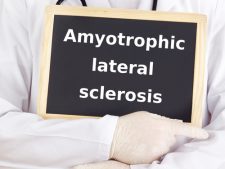 ALS is a terrible disease with no cure. It leads to death within a few years after progressive neurodegeneration.
ALS is a terrible disease with no cure. It leads to death within a few years after progressive neurodegeneration.
And, although it would be hard to find a person who has not heard of ALS after the Ice Bucket challenge a few years ago, it would be equally as hard to find a person who knows what causes it. That’s because 95 percent of ALS cases have no known cause (the other 5 percent have a genetic component.)
This lack of answers opens the door for any news to gain traction simply because something, no matter how inane, is better than nothing. A paper published in JAMA Neurology this week takes full advantage of that by reporting an association between environmental pollutants and ALS.
The study entitled,"Association of Environmental Toxins With Amyotrophic Lateral Sclerosis" is based on two pieces of information gathered from participants: (1) responses on a survey that analyzed their exposure to pollutants through lifestyle, and (2) the amount of pollutants measured in their blood. There were 156 people with ALS and 128 without included in the study, all around the age of 60.
When the blood work and surveys were analyzed together, five of the 122 compounds tested showed an association with ALS. Meaning, more people who had ALS had those chemicals in their blood than people who do not have ALS.
Those two factors correlate. So does, as seen in the graph below, cheese consumption and the number of people who died by becoming tangled in their bedsheets. However, (do I really need to say it?) eating cheese does not cause bedsheet entanglement. One does not cause the other. They simply go up and down at the same time.
 Graph courtesy of http://www.tylervigen.com/
Graph courtesy of http://www.tylervigen.com/
Similar to cheese and bedsheets, the paper in JAMA Neurology in no way proves that pollutants have a role in causing ALS. Those chemicals could have been in the patients' blood for any number of reasons.
The paper has a few other results that they do not highlight which is not surprising when you realize what they are.
The first is that two of the compounds tested were found more frequently in people without ALS than those with ALS.
Also, the authors were surprised to find a decreased association between lead exposure and ALS. Because lead is a known neurotoxin and has been implicated in ALS before, this result made little sense according to their hypothesis.
Lastly, a correlation between ALS and military service was found, which is also difficult to explain. The lifestyles of members of the military differ in so many ways from those non-military individuals that it is hard to consider that being useful information without a lot of further investigation.
The first line of the conclusion of the paper is "Our findings identify classes of pollutants that increase the likelihood of ALS and therefore are modifiable disease risk factors." However, the data in their paper simply do not support this statement. The five compounds that they study do not increase the likelihood of ALS. They are found more in the blood of people with ALS than people without ALS. That's it.
This post is being written one day after the article was published and there are already headlines such as "Pesticide exposure linked to increased risk of ALS" and "Pesticides, military service may be tied to ALS risk." This publicity based on poor research highlights bad research which is not only distracting, but will dilute out the solid research that will, eventually, determine the cause(s) of ALS.



